A Response to Southeastern Seminary’s Defense of Nate Brooks
The recent controversy concerning Southeastern Seminary and its counseling faculty gained a significant amount of momentum over the last two weeks. You can read about the details of the controversy in my article Scripture Isn’t Scary: On Biblical Counseling, Trinitarian Errors, and God as “Mother”, which was a response to SEBTS counseling professor Nate Brooks’ since-deleted post at the Biblical Counseling Coalition, When the Bible’s Metaphors Are Scary.
Since Brooks’ original post, pastors from across the country raised concerns about how Brooks encouraged some people to think of God as their mother if their earthly fathers mistreated them. This week, SEBTS President Danny Akin released a public statement providing an official foreword and defense of Brooks along with an expanded and updated version of Brooks’ original article.
First, I am thankful President Akin took the time to engage this matter and make a clear statement about God as Father. I am also thankful for Nate clarifying his previous post. It was a much-needed clarification, and I am grateful!
However, I must confess the expanded article is still unsettling.
The original blog post had four main problems:
- A Trinitarian problem
- A Hermeneutical problem
- A Methodology problem
- A Moral problem
In the updated version, the first and most important error has been corrected. The expanded article is now orthodox.
However, the other three problems remain.
A Hermeneutical Problem
Brooks uses Christ’s words from John 16:12, “I still have many things to say to you, but you cannot bear them now,” as a justification for sidestepping the truth that God is Father and focusing on the female descriptions of God for those who have a bad earthly dad. However, it is hard to imagine this is an appropriate use of this passage. Did Jesus really mean that we should avoid talking about God as Father instead of showing how wonderful His Heavenly Father is? Does he want to us “progressively reveal” his Fatherly essence by first talking about feminine descriptions? I don’t think this is what Jesus had in mind on the night he was crucified and cried out “Father, forgive them! They know not what they do.”
Even within the immediate context of John 16, Jesus is speaking candidly and clearly about the Father and the Holy Spirit. “When the Spirit of truth comes, he will guide you into all the truth, for he will not speak on his own authority, but whatever he hears he will speak, and he will declare to you the things that are to come. He will glorify me, for he will take what is mine and declare it to you. All that the Father has is mine; therefore I said that he will take what is mine and declare it to you.” (John 16:13–15)
This brings me to a most crucial issue and the starting point at which Brooks goes awry in this entire episode: For a Christian, the Bible’s portrayal of God the Father isn’t scary.
The fact that God is Father, and our Father, is good news! It is a beautiful moment in ministry to show people how God is the good Father they may never have known. Brooks and I both want this, but we clearly have different approaches for how to arrive there.
Furthermore, Brooks continues to refer to God the Father as an “image.” But this still falls short and leaves the door open for confusion. He is accurate in his understanding of ontology, but he misses the point. Brooks writes, “God’s multifaceted presentation of himself through a wide number of metaphors and images means that when one of these causes significant distress, we may often get to the same truths about God through other avenues.”
This advice is unhelpful. Who God is does not cause distress. He isn’t the problem, we are!
Additionally, the Fatherhood of God is not an image or metaphor derived from any earthly creation. Rather, the opposite is true. I remain perplexed by several statements in the blog and even the title. What to do “when the Bible’s metaphors and images are scary?” Clarifications aside, it seems unavoidable that this makes it appear like God the Father is a metaphor and is scary! I believe it is not best to write, talk, and counsel like this.
It would be much better if Brooks just gave up the post and retracted it altogether.
A Methodology Problem
Your hermeneutical method (how one interprets the Bible) always impacts your ministry method. They cannot be separated. Yes, personal experiences are important. Good counselors always listen and apply the Bible to particular people. But practical theology always flows from biblical and systematic theology. Biblical counseling is a theological discipline. A sound hermeneutic and orthodox theology must always be the “controlling factors.”
But Brooks inverts how a faithful counseling ministry practice should be ordered.
Brooks takes a person’s experience of a bad earthly father and makes that reality the controlling factor in his approach. He still seeks to temporarily sidestep who God has revealed himself to be by distracting the counselee from God’s goodness as Father and then focusing on a handful of texts containing motherly language. Rather than letting the truth about God’s Fatherhood control his ministry practice, Brooks suggests that the person’s broken view of God’s Fatherhood should guide the process. He commits the error of “therapeutic empathy.” And this is a serious methodological ministry mistake.
We should always be sensitive to the sufferings of those to whom we are ministering. The Bible is rich in wisdom on how to handle even the most extreme forms of trauma. However, personal trauma must never be allowed to control a counselor’s ministry methodology. The modern “experts” in “trauma-informed therapy” are not the authority for biblical counselors. Biblical counselors submit to the authority of Christ and His Word. God’s people have been helped through the sufficient Scriptures through the ages, without the need for modern psychologized practices.
A Moral Problem
When sharing his expanded essay, Brooks rather dismissively claimed that “An article I wrote a couple weeks ago inadvertently caused quite a stir.” However, this statement does not hold up under scrutiny. If one of my children spills a cup of milk, that is an accident—it happens to everyone. No worries! But if my child spills a cup of milk, doesn’t realize it, and I point it out, it becomes a moral problem when my child then blames me and says I’m the real issue.
Instead of taking responsibility for his original, unorthodox post, Brooks instead blamed the people who were bothered by his blog and accused them of having a hermeneutic of suspicion or being uncharitable. We all make mistakes, but it isn’t right to double down and blame others for them.
There was also an exchange with Kristin Kellen, a professor of counseling at SEBTS and the associate director of EdD studies, who posted about how SEBTS teaches in accordance with the Baptist Faith & Message 2000. She invited and “welcomed” questions to be asked directly. But when I asked Kellen, “What do you think about encouraging counselees to view God as their mother if they have a bad view of their earthly father?” she was unwilling to answer the question and it was clear that she viewed even asking the question as a problem. You can read the whole exchange here.
If Brooks meant to show genuine, humble accountability for his role in this (and by extension, Southeastern’s), he would have said something like: “What I wrote was unhelpful and I made a mess. I am sorry I blamed others instead of owning my errors.”
Unfortunately, that hasn’t happened yet and therefore a moral problem remains. Southeastern continues to present a narrative that the real “issue” here is the Southern Baptist pastors and counselors who were shocked by what he wrote.
Conclusion
While “controversy” is never enjoyable, it is often clarifying. As such, I am truly thankful for the clarity provided this entire year when it comes to biblical counseling. This event, along with several others, demonstrates there are deep issues involved and that many new people are interested in biblical counseling for the first time.
I’m thankful to God that he is always building up His church and that iron can sharpen iron. I wholeheartedly agree with Brooks that “We must always strive to be biblically and theologically faithful.”
Unfortunately, it appears that the final resolution here will not be a total retraction of the blog by Brooks nor fulsome institutional accountability. But we know that the Lord loves us all and is working for His good and His glory.
There are obviously issues we disagree about, but resolution on the most central issue, the question of orthodoxy, is crucial. For that, at least, I am grateful to President Akin and Brooks for taking it seriously and engaging the matter even though I believe problems remain.
-

Sean serves as the Associate Pastor at First Baptist Jacksonville and is an ACBC certified counselor with a specialization in marriage counseling. He is the co-author of three books: “Letters to a Romantic: On Dating,” “Letters to a Romantic: On Engagement,” and “Letters to a Romantic: The First Years.” He and his wife have also written “Should I Take the Pill?: Providing Biblical Counsel on Birth Control and Contraceptives.” He has a Ph.D. in Applied Theology with an emphasis in Biblical Counseling from Midwestern Baptist Theological Seminary.

